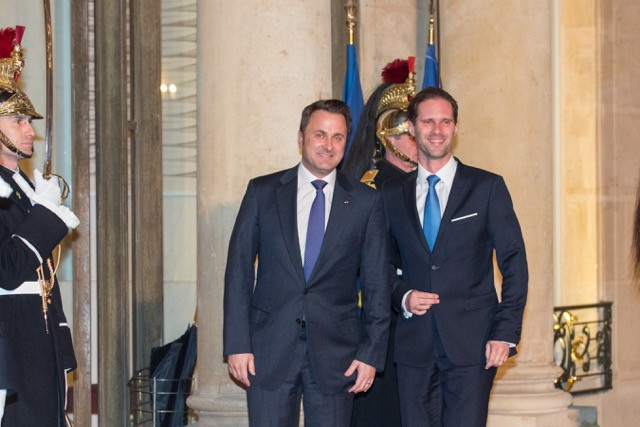Luxembourg’s prime minister, Xavier Bettel, has confronted Arab leaders over the repression of gay rights, telling them his same-sex marriage would condemn him to death in some of their countries.
The conference room at a summit of EU and Arab states fell silent when Bettel made his statement, according to a German TV journalist.
Retweeting this account, Bettel wrote: “Saying nothing was not an option for me.” The tweet was signed with his initials.
Bettel, the first EU leader to be married to a same-sex partner, had planned to make the intervention before arriving at the summit, which was the first gathering between the EU and Arab League.
Homosexuality is punishable by death under sharia law in Saudi Arabia, Sudan and Yemen. Other countries in the region prohibit same-sex acts, including Algeria, Morocco, Oman, Tunisia, Syria, Kuwait and some of the United Arab Emirates.
Syria, which is currently suspended from the Arab League, was not represented at the summit.
Bettel’s point is underscored by the treatment of the lesbian, gay, bisexual and transgender community in Egypt, the country that hosted the summit.
Homosexuality is not illegal in Egypt, but LGBT people are frequently detained on euphemistic charges such as “debauchery”. After the Egyptian president, Abdel Fatah al-Sisi, came to power in a coup in 2013, he “appeared to embrace persecution of gays and trans people as a political strategy” according to a report by Human Rights Watch.
EU leaders said they raised human rights with their Arab counterparts. “I insisted that our summit declaration should include our common commitment … to the upholding of all aspects of internal human rights law,” Donald Tusk, the European council president, told journalists after the summit.
The EU had to acquiesce, however, to Arab demands to drop a reference to freedom of expression in the summit communique in favour of more general wording on upholding international human rights law.
The European commission president, Jean-Claude Juncker, defended the bloc’s decision to hold the summit. “If I only talked to flawless democrats, then I would end my week already by Tuesday,” he said.
Standing alongside Tusk and Juncker at the final press conference, Sisi defended the death penalty and dismissed criticism of his human rights record. “We are two different cultures … Our priority is preserving our countries and stopping them from collapse, destruction and ruin, as you see in many surrounding states.”
These remarks were followed by enthusiastic applause from Arab officials and journalists.
Tusk, a former journalist who was jailed for his political activities in communist Poland, said: “I really appreciate how enthusiastic your media is. It’s impossible in Europe to have such a reaction. Congratulations.”
EU sources said the remarks were clearly sarcastic.
EU officials see the summit as a success, partly because of the guest list. Most EU presidents and prime ministers took part, while the most controversial Arab leaders stayed away, including the Sudanese president, Omar al-Bashir, who is accused of war crimes, and Saudi Arabia’s crown prince, Mohammad bin Salman.
By Jennifer Rankin in Brussels
